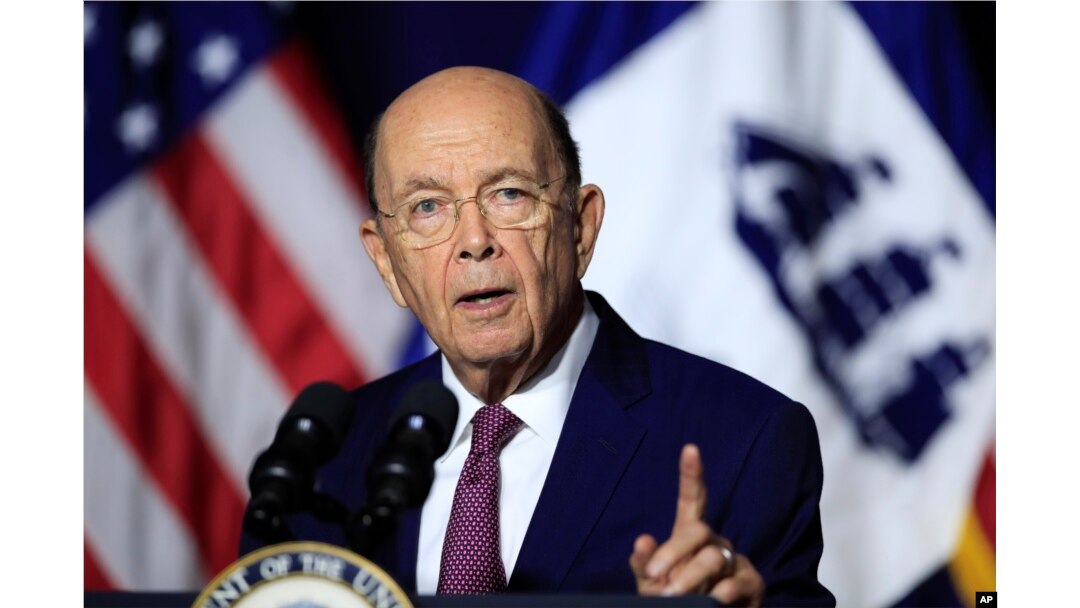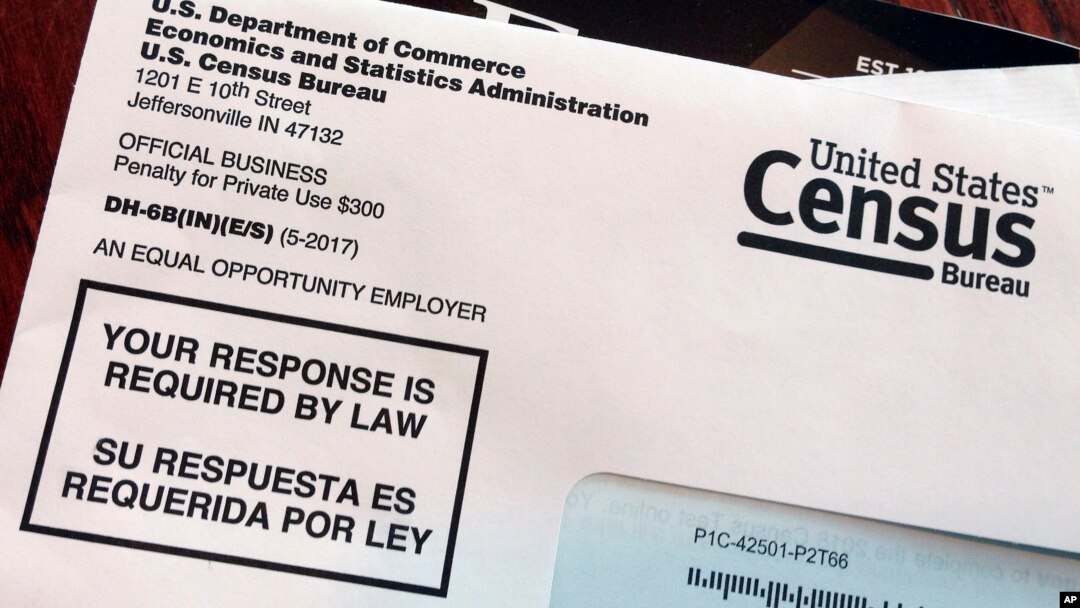The U.S. Census Bureau's top scientist on Wednesday insisted the bureau can get a full count of American residents during the 2020 census, despite the Trump administration's addition of a question on citizenship.
The agency's chief scientist, John Abowd, made the comments in testimony in federal court in New York, where a group of U.S. states, cities and civil rights groups have sued the administration to remove the question, arguing it could dissuade non-citizens from participating in the decennial census.
Commerce Secretary Wilbur Ross, a Republican, announced the citizenship question in March, saying it was needed to enforce federal laws against voter discrimination.
But plaintiffs say that is a pretext, and they want U.S. District Judge Jesse Furman, who is hearing the case, to strike the question. They say Ross' real motive is to scare immigrants into abstaining from the census, costing their mostly-Democratic communities political representation and federal aid.

FILE - Department of Commerce Secretary Wilbur Ross speaks to department workers in Washington, July 16, 2018.
Abowd's testimony spanned two days and grew tense at times.
Closing arguments were tentatively set for Nov. 27.
On Wednesday, plaintiffs accused government lawyers of "ambushing" them with new evidence.
On Tuesday Abowd appeared to fight back tears when a plantiff lawyer said the Trump administration had decided to add the citizenship question well before asking him to study the matter.
Abowd admitted the question could lower the response rate and quality of data in the 2020 census, but said it will not cause an undercount because the bureau will follow up with non-responders. If that process requires more effort than expected, he said, enumerators can simply work harder.
"There is enough capacity in the current cost model" to "adjust their workloads," Abowd said, citing a $1.7 billion contingency in the census budget.
He said the bureau will also rely on neighbors and existing government records to augment missing data.
Witnesses for the plaintiffs previously testified that such methods will not produce a full count.
An economist and Cornell University professor, Abowd is among the trial's most compelling witnesses. Appointed to his Census role during the Obama administration, he advised against including the citizenship question earlier this year. But as a witness, he has had to defend it.
On Wednesday, when Abowd testified that the bureau was planning a new study on the impact of the citizenship question on the voluntary response rate of the census, an attorney for the American Civil Liberties Union objected.
"They're trying to ambush us with new evidence," attorney Dale Ho said, saying that the information should have been revealed during discovery.
The judge appeared to agree, saying he was "inclined to strike" Abowd's testimony on the topic.
On Tuesday, Abowd appeared to hold back tears when Ho said Ross had withheld information from Abowd.
Abowd was asked to spend his holidays last December running an analysis on the pros and cons of adding the question. In fact, Ho said, Ross had decided months earlier that he supported its addition.
"From the beginning of the time I started my analysis through today, I'm just carrying out my obligations," said an emotional Abowd.


